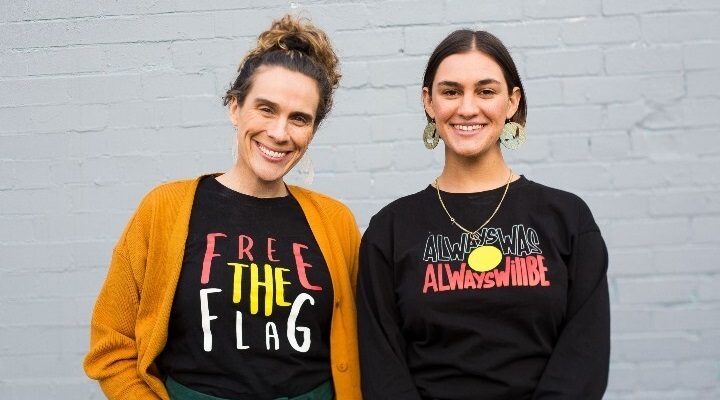In Australia, Tuesday, January 26, is a public holiday meant to celebrate the country’s history and achievements. But the doors of Melbourne fashion brand HoMie’s store will remain open. “We are staying open […] and not acknowledging [it] as a public holiday,” Nick Pearce, CEO of the social enterprise, told Inside Retail. HoMie is one of a growing number of businesses that are boycotting Australia Day and supporting a campaign to Change the Date in solidarity
arity with Aboriginal and Torres Strait Islander people, for whom January 26 is a day of mourning.
“We acknowledge the significance of January 26 to First Nations People and as a brand, have stood by the fact this is not a date to celebrate,” Pearce said.
January 26 marks the date when the British flag was raised at Sydney Cove, representing the beginning of colonial rule over Australia and the decline of a devastating portion of the Indigenous population.
“It is a day of mourning; a moment to acknowledge the true history of this country and what that means,” he said.
Gaining momentum
Efforts to change the date aren’t new. An Indigenous-led campaign to make January 26 a Day of Mourning actually predates the creation of the national public holiday in 1994 by several decades. But some observers believe they are gaining momentum.
“We definitely think the Change the Date campaign has been getting more traction this year,” said Laura Thompson, co-founder and managing director of Clothing the Gap, an Aboriginal-owned and led social enterprise know for its ‘Always was, always will be’ and ‘Free the flag’ t-shirts.
Cricket Australia recently made headlines for its decision to refrain from using the phrase Australia Day in Big Bash League promotions, while the ABC has defended its use of both Australia Day and Invasion Day in an article.
A spokesperson for the national broadcaster said it would be inappropriate to mandate staff use any one term over another given the variety of terms in use and different perspectives on the day.
Thompson believes businesses and the general public have become more open to the idea of changing the date after the global reckoning with racism and police violence sparked by the Black Lives Matter protests last year.
“At the height of the Black Lives Matter movement, many people drew parallels to the injustices in the US and the historical and continued injustices and systemic racism in Australia,” she said.
“Much like Black experiences in the United States, Australia has its own ongoing history with police brutality and systemic racism towards First Nations people for centuries.”
Thompson pointed out that Australia Day’s colonial history is directly linked to the child removal, systemic racism, higher incarceration rates and deaths in custody experienced by Aboriginal and Torres Strait Islander people.
“The suicide rate for young Aboriginal men is the highest in the world. Are these realities something you can celebrate?” she asked.
‘It is OK to start small’
Notably, businesses didn’t just observe the Black Lives Matter protests, many made public statements condemning racism, donated to charities supporting people of colour and outlined new strategies to combat inequality and unconscious bias in the workplace.
January 26 offers them an opportunity to prove it wasn’t just talk.
“Businesses have a sphere of influence,” Thompson said. “Consumers and stakeholders are also families, voters and minorities and they are demanding and deserving of accountability, action and change. They’re looking to businesses to provide leadership as over the years, many governments and institutions have failed to do so.”
Thompson believes that the past year has been a period of listening and learning, and she’s hopeful it will translate into meaningful action around the future of January 26.
“It is OK to start small – small and meaningful action will always defeat performative action but remember that doing nothing is an action too,” she said.

